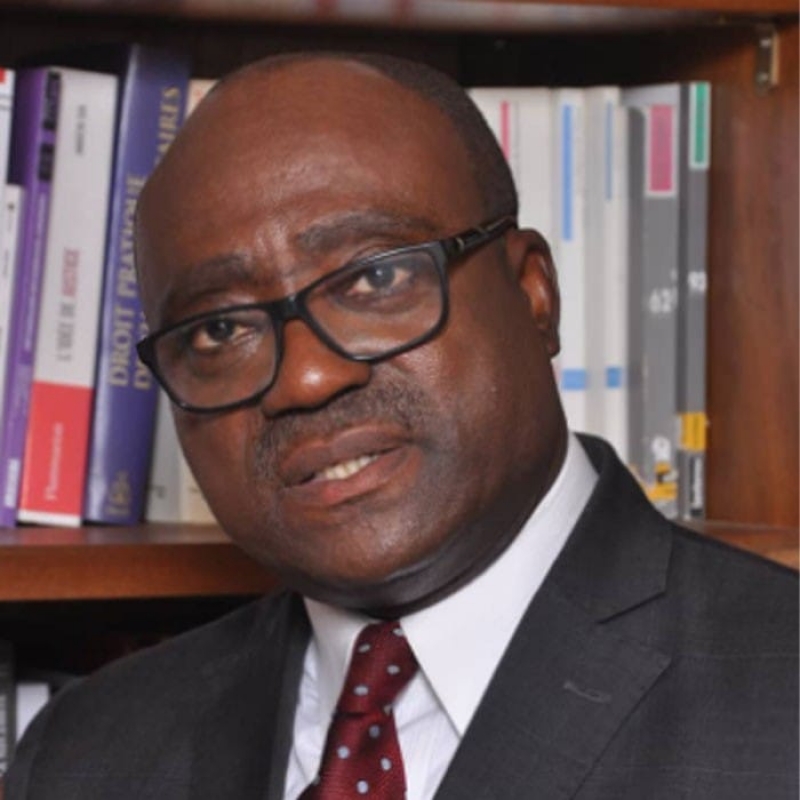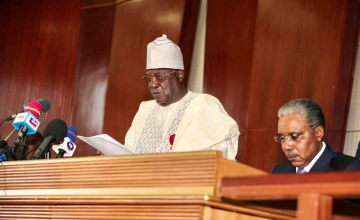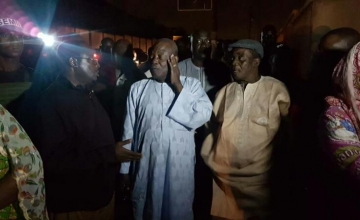
According to an announcement from the office of the Secretary General of the Bar Council, Barrister Philippe Memong, Wednesday’s session will strictly be for the examination of the draft bill laying down the promotion of official languages in Cameroon.
Article 26 of the said Bilingualism bill has raised plenty of dust, forcing Common Law Lawyers in the North West and South West Regions to stage a warning strike as the bill was set to be adopted by the National Assembly. The Bar therefore seeks to examine the draft bill and forward their recommendations to the Minister of State, Minister of Justice and Keeper of the Seals for due consideration.
Since Wednesday, the Bilingualism Bill appears to have been shelved at the National Assembly following the nationwide criticism from the civil society, the private bar and politicians.
Indeed, Barrister Akere Muna, candidate to the Cameroonian 2018 presidential election tweeted Thursday that the author of the Bilingualism Bill that has now been shelved in parliament is not a lover of peace.
The former President of the Cameroon Bar Association said he is yet to understand how someone will in the context of the ongoing situation in Cameroon’s North West and South West Regions choose to make bilingualism an option.
Hear him: “I cannot understand how any peace loving citizen given the present context can propose a bill that makes bilingualism an option, in blatant violation of the constitution! Talk about fuelling the fire! So, here we go again. Lawyers protest in Bamenda...”
Cameroon-info.net recalls that Common Law Lawyers in the North West Regional capital, Bamenda, Wednesday staged a peaceful demonstration, denouncing a draft bill on languages tabled before Parliament. Their colleagues in Buea stayed away from court, but for a handful of them.
The draft bill, the lawyers said, if adopted, will impose the French Language in Common Law Courts. Such a move is what triggered the current socio-political crisis rocking the Northwest and Southwest Regions in which an attempt by the Government to appoint Civil Law Magistrates in Common Law Courts sent Anglophone Lawyers to the streets of Bamenda, Buea, Kumba, and Mamfe in 2016.
The lawyers in Bamenda, led by Barrister Eric Mbah, staged the demonstration in front of the Bamenda High Court, Wednesday, December 4, calling on Lawmakers to get French out of Common Law Courts.
According to Barrister Mbah, representative of the Bar President in the Northwest Region, the bill is taking the country back to the 2016 era, when the Anglophone Crisis started.
He said the bill will allow judgment to be delivered in French in the Common Law jurisdiction and in English in the Civil Law jurisdiction, something they cannot accept.
“We cannot stand by and see such an affront to justice go un-denounced. The Special Status envisaged for the two Anglophone Regions of the country made many to start thinking that it will give some recognition to the Common Law. Unfortunately, a draft bill of that nature is put in, thereby, taking us back to 2016 when the crisis all started. The genesis of the crisis was the fact that justice was not being delivered and the slogan is: Justice must not only be done, but manifestly seen to be done,” Barrister Mbah stated.
He said they have been reliably informed that the draft bill has been suspended since they have raised objections. He, however, said; they shall be vigilante and will not be scared about the blackmail and names that will be given them.
He further intimated that they were just doing what Lawyers in any civilised society should do by defending and ensuring that the right laws are enacted so that the people can be dispensed good justice.
Meanwhile, Section 26 of the draft bill stipulates that, judgment can be delivered in court in any of the two official languages. What this means is that in the Common Law jurisdiction, judgment can be delivered in French and in the Civil Law jurisdiction and judgment can be delivered in English, a section which the Common Law Lawyers take exception to. Going by the Bar President’s representative, if the draft bill is adopted and enacted into law, they will take to the streets to denounce it.














